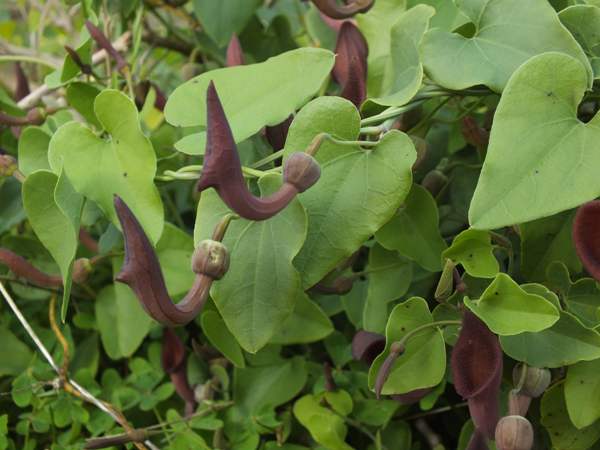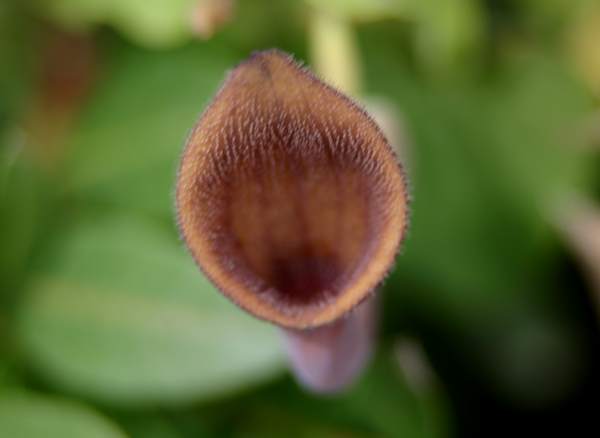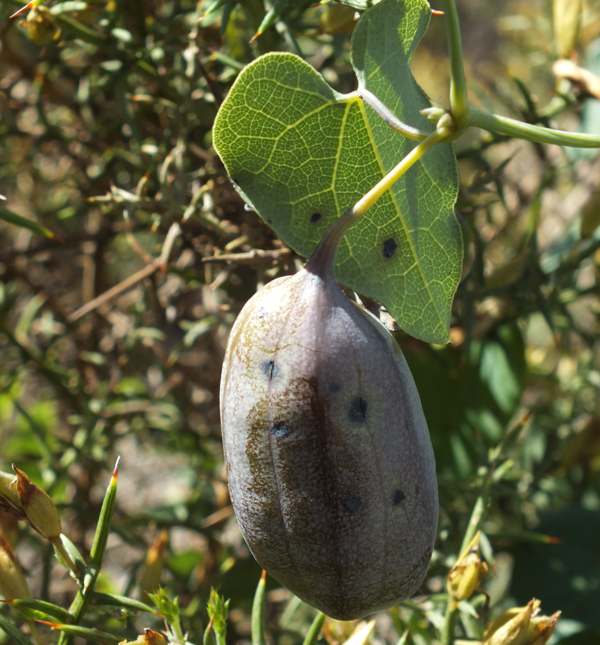Aristolochia baetica - Dutchman's Pipe
Phylum: Magnoliophyta - Class: Equisetopsida - Order: Piperales - Family: Aristolochiaceae

The saxaphone-shaped flowers of Aristolochia baetica are purple and the leaves a blue-green
The Aristolochiacea family of plants are commonly known as Birthworts. They are a small family which occur in tropical and Mediterranean regions.
Aristolochia baetica is very similar to Aristochia sempiverens which occurs in parts of Italy, North Africa and parts of the eastern Mediterranean region. Aristolochia baetica has darker flowers which are more purple in colour, and the leaves of the plant are a blue-green colour.
The plants of the Aristolochiaceae family attract their pollinators (flies) by exuding a strong smell from their flowers which are typically saxaphone-shaped. When the flies crawl down into the flowers, they are trapped by the hairs that surround the 'mouth' and remain, crawling around, inside the flower overnight. By the following morning the hairs have withered and the flies, now covered with pollen, are able to escape and move on to other flowers and so complete the pollination cycle.

Aristolochia baetica is very common in the Algarve in Portugal, and can be found on roadsides and other waste ground where the plants scramble over shrubs and rough stone walls. It flowers from June to August, and the seeds are borne in large fleshy pods..

Seed pod
The plants shown on this page were photographed in the Algarve region of Portugal in early April.
Please Help Us: If you have found this information interesting and useful, please consider helping to keep First Nature online by making a small donation towards the web hosting and internet costs.
Any donations over and above the essential running costs will help support the conservation work of Plantlife, the Rivers Trust and charitable botanic gardens - as do author royalties and publisher proceeds from books by Pat and Sue.

